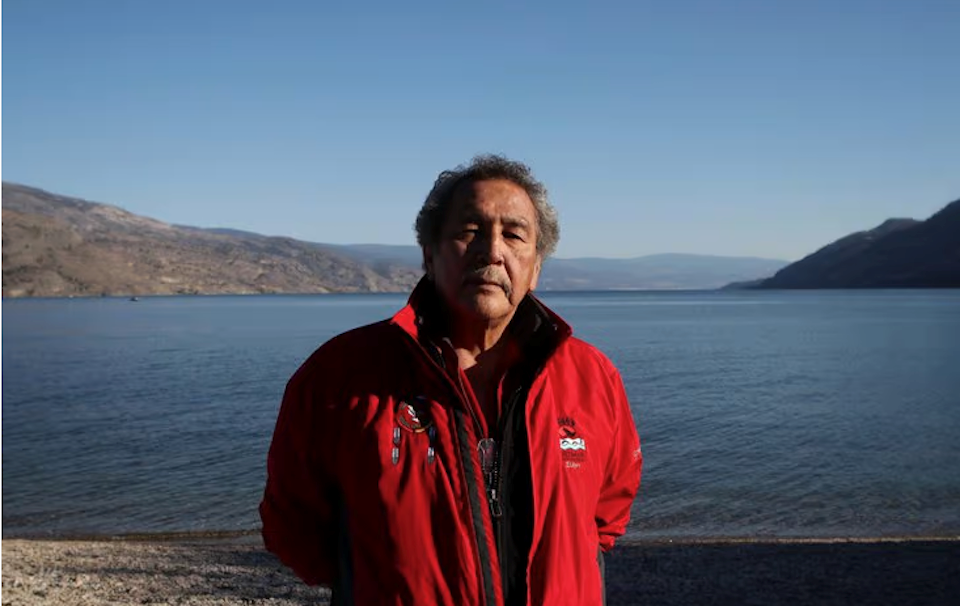Following a water ceremony at the shore of kɬúsx̌nítkʷ (Okanagan Lake), a syilx Elder and knowledge keeper calls for more action to be taken when it comes to addressing pollution and illegal dumpings across the region.
“All I can say is action is better than words,” said K̓ninm̓tm̓ taʔ n̓q̓ʷic̓tn̓s Wilfred “Grouse” Barnes of Westbank First Nation. “To take action, to really just get out on the land, get your hands dirty picking up stuff — walk and talk.”
Ahead of the ceremony on Sunday, Barnes and his wife, Pamela, were invited to attend the Peachland Watershed Protection Alliance (PWPA)’s community cleanup event in honour of World Rivers Day, which saw dozens of “Peachland” residents come together to pick up garbage in and around the “Hardy Falls” area.
During the water ceremony, Barnes read from the syilx Nation’s siwɬkʷ (water) Declaration, which is a living document created in 2014 by Elders and knowledge keepers that outlines the Nation’s commitment to honouring and protecting siwɬkʷ.
Afterwards, he smudged people in attendance and invited them to make a tobacco offering to the water.
“Us Elders, us syilx people, this is our land. This is our water. For us to help protect it, to help keep it clean, is far better than just talking about it,” he said.
Every year, PWPA partners with community members and organizations such as Okanagan Forestry Task Force to clean up illegal dumpsites and abandoned vehicles left within the “Peachland” watershed, which spans about 124 square km west of “Okanagan Lake” and provides drinking water to the community.
While the community cleanup around “Hardy Falls” on Sept. 25 saw only a handful of garbage bags filled with litter along creeks and streams, industrial garbage bins were packed with garbage collected during the “Peachland” watershed cleanup on April 30.
The latter cleanup event saw residents haul away everything from abandoned vehicles, furniture, shotgun shells, used needles, household appliances and more.
Kane Blake of the Okanagan Forest Task Force said that since the organization’s founding in 2016, they’ve cleaned up over 400,000 pounds — about the size of a passenger jet plane — of illegal dumpings from across the “Okanagan.”
Barnes praised PWPA for the work that they do in protecting and cleaning up the water and the land.
“What I see is there’s a lot of respect. A lot of respect for the syilx people, and a lot of respect for the water and the land,” he said.




